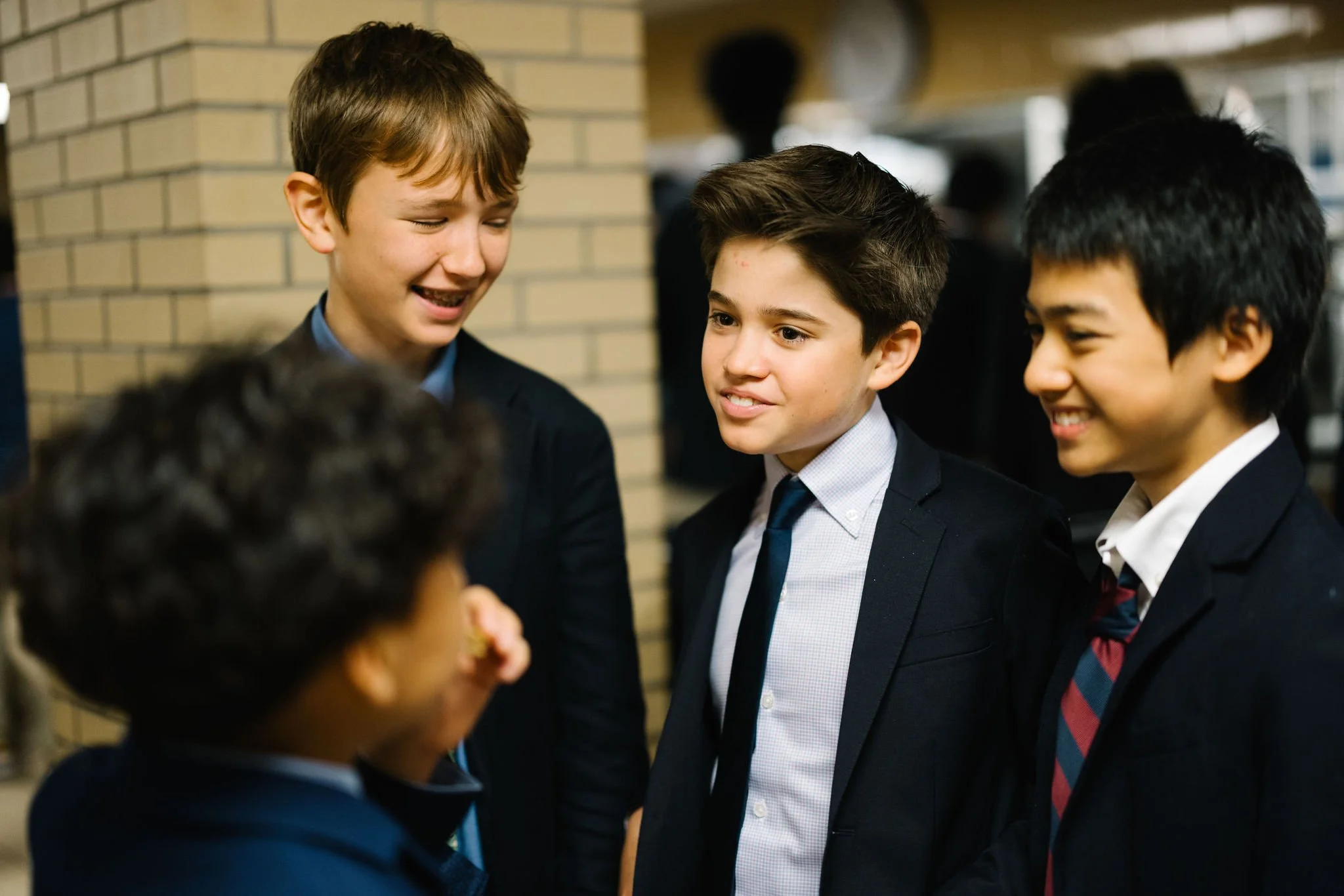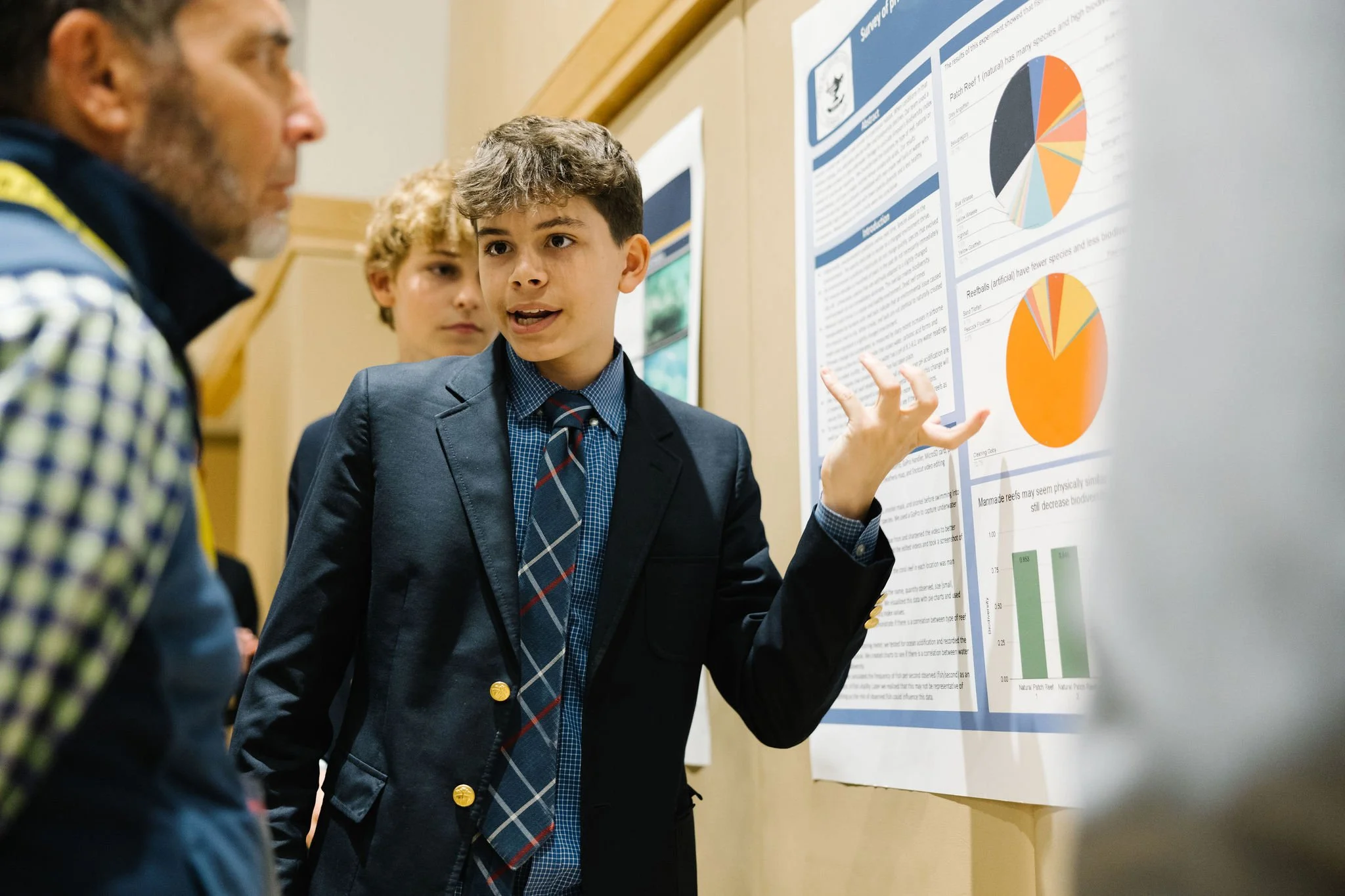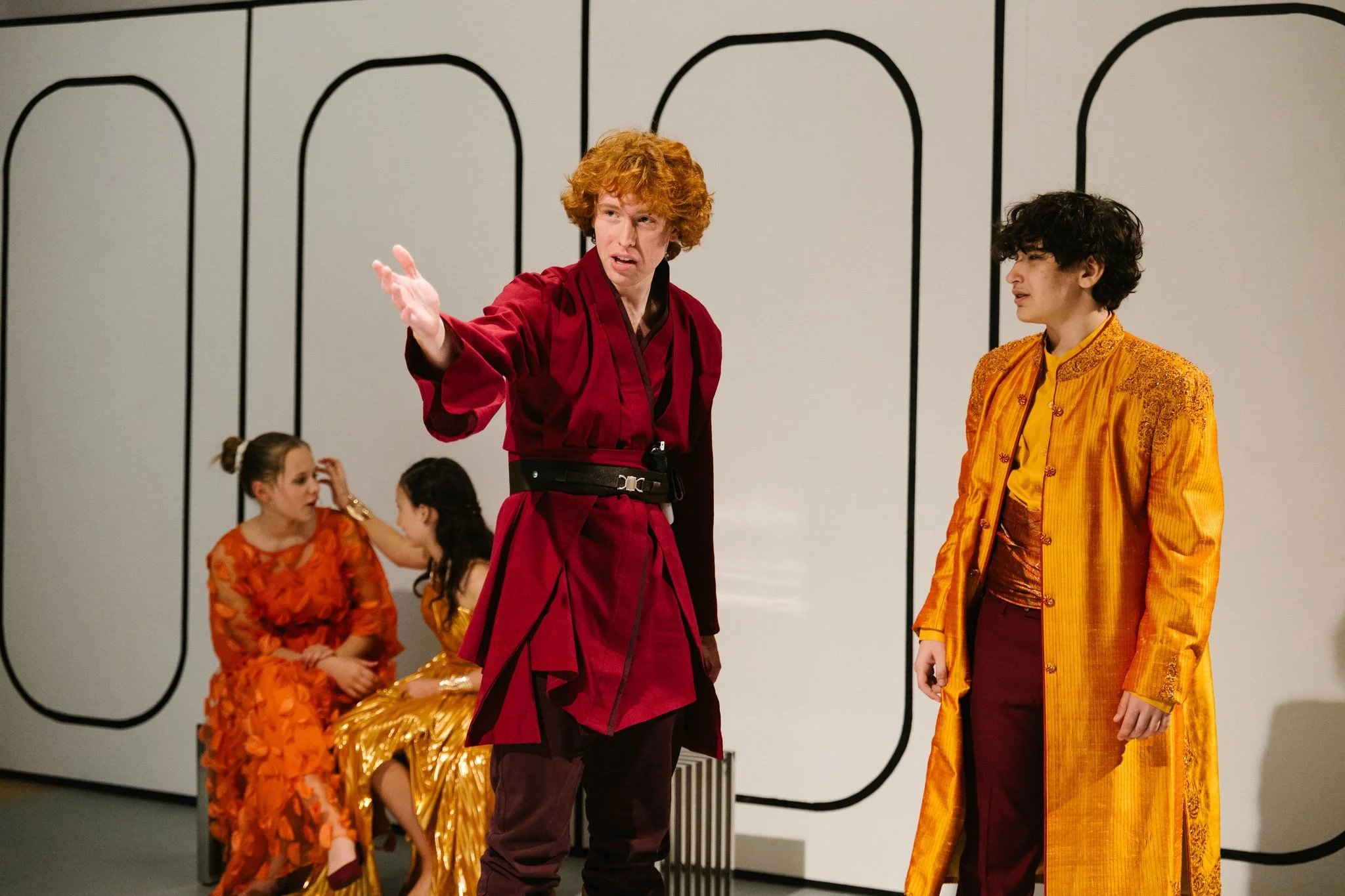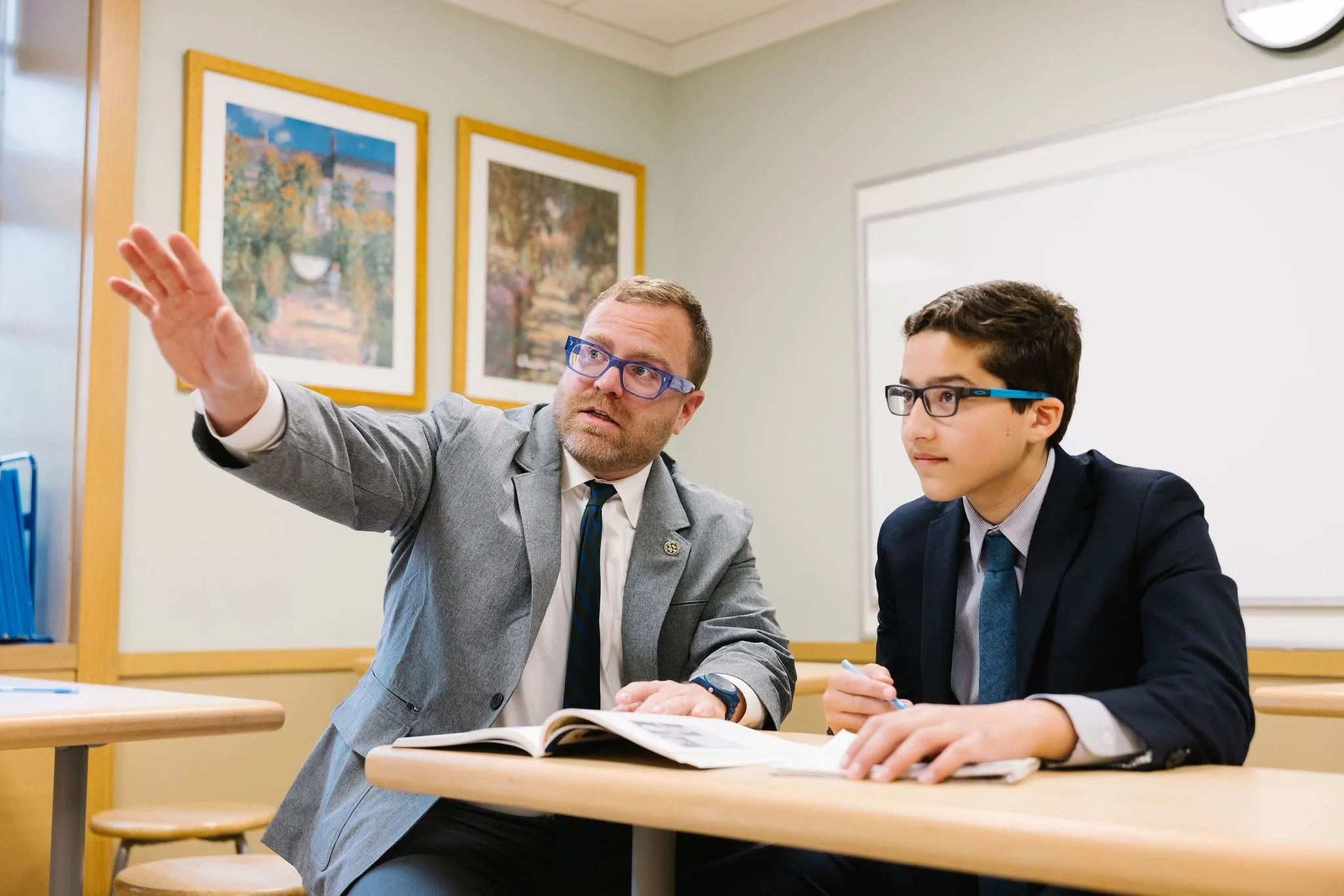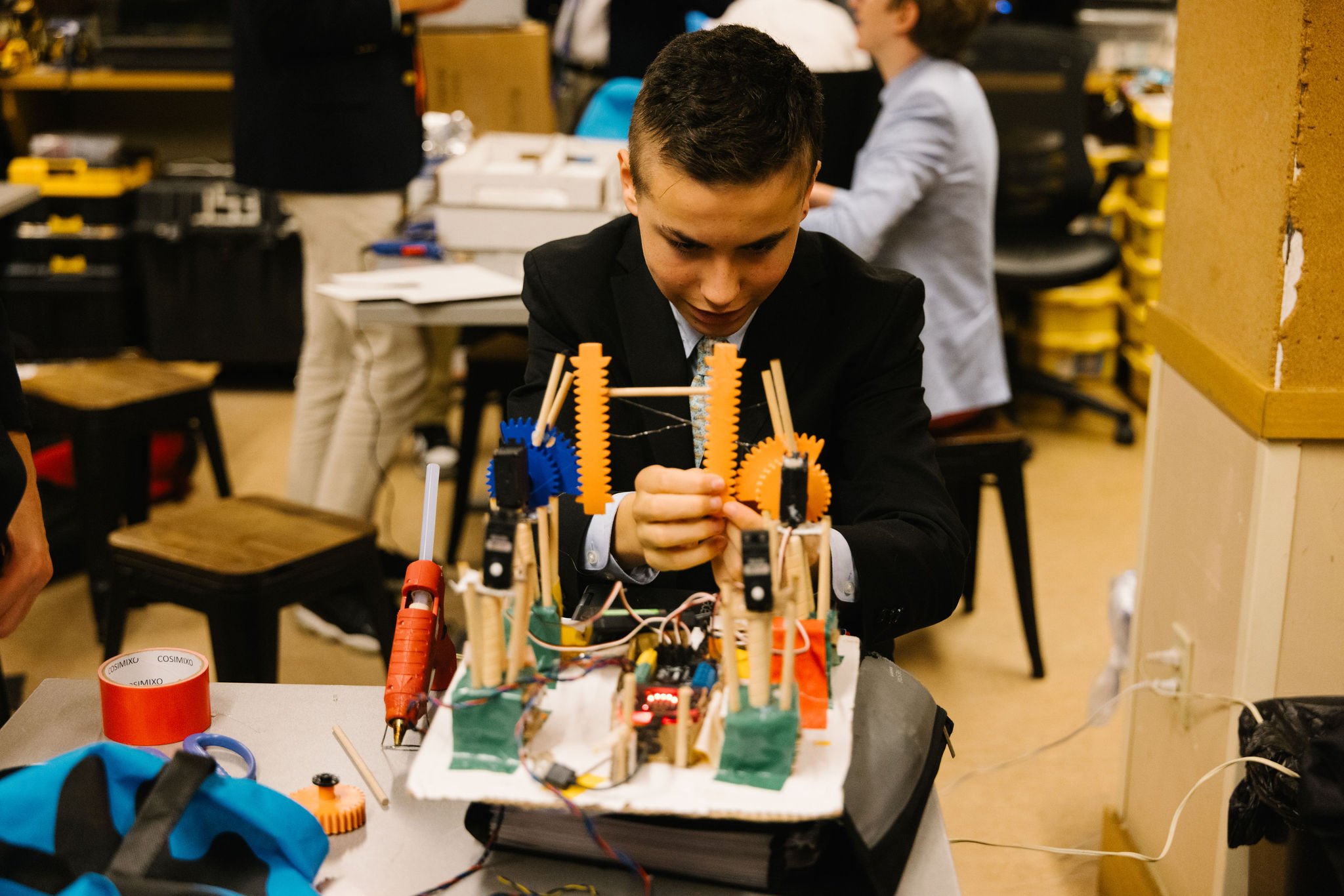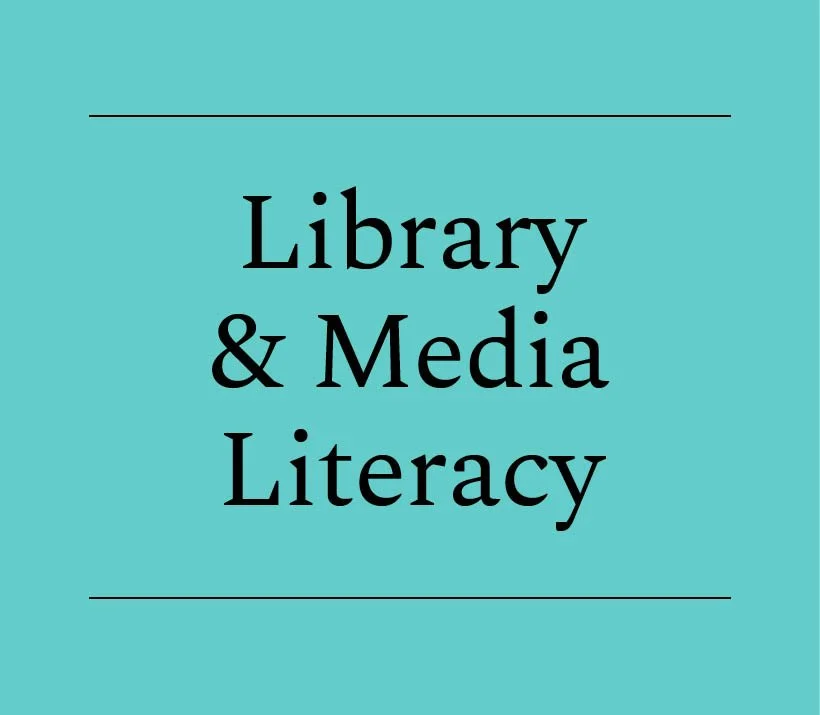Grade 6
Latin
Middle School Latin at Browning is a multifaceted experience. At this introductory level, students encounter the language through the reading approach of the Cambridge Latin Course, along with excerpts of authentic and unedited Latin, Greek, and Hebrew literature about the Romans, as they learn the basics of Latin nouns and verbs - along with a robust list of English derivatives of Latin vocabulary - through stories about ancient Pompeii in Unit 1. Cultural topics include daily life, the diversity of the population in this port town, and the history of enslavement in the Roman world, with regular trips to the Metropolitan Museum of Art’s Greek & Roman galleries.
French
Students study vocabulary related to the family, the classroom and leisure activities. The class covers the present tense, the near future, negative and interrogative expressions, adjective agreement, the possessive forms, and the definite and indefinite articles. Cultural units focus on daily life, and a major project on the art, history, literature or geography of a French-speaking country is completed, based on Reporters 1B by Klett World Languages. Reading, writing, speaking, and listening skills are all developed.
Spanish
This course begins with a detailed review of greetings, numbers, date, time and weather, moving on to the study of vocabulary related to school, the home and the marketplace. The present indicative, negative and interrogative expression; possessive adjectives, and the gender and number of nouns, adjectives and articles are introduced. Boys are encouraged to speak and write in the target language and develop their listening skills through various listening comprehension exercises.
Grade 7
Latin
Latin in the seventh grade will follow the sixth grade curriculum for the 2025-26 school year.
French
French 7 begins with the novel Jean-Paul et ses bonnes idées as students review the grammar and vocabulary covered in Grade 6 French, and discover cultural aspects of France. The class moves onto the novel La France en danger et les secrets de Picasso. Each chapter of the book includes a related grammar, cultural, and vocabulary lesson. Over the course of the year, students will study the basic elements of language (the present tense, the futur proche, adjective agreement, articles, interrogative, possessive and demonstrative adjectives, how to ask a question, and negation) and vocabulary related to everyday activities. Students develop reading, writing, speaking, and listening skills, as well as cultural competency.
Spanish
The goal of this course is for students with prior knowledge of basic Spanish to develop their listening, speaking, reading and writing skills. Students begin to expand their use of the language in a variety of contexts. They are encouraged to speak and write in the target language and develop their listening skills through various listening comprehension exercises. In grammar, the class covers negative and interrogative expressions, possessive adjectives, ordinal numbers, the forms and uses of ser and estar, the present tense of stem changing, irregular, intransitive and reflexive verbs, the rules of the infinitive, and the past tense of regular verbs. Enrichment of vocabulary and cultural awareness is emphasized. Additionally, the boys further explore language and culture by reading the short novel Brandon Brown Hace Trampa.
Grade 8
Latin 1
Latin 1 aims to bring the student’s reading comprehension to a high novice level on the ACTFL (American Council on the Teaching of Foreign Languages) scale, by deepening the student’s internalization of Latin grammar, syntax, and vocabulary. Students continue to develop their faculty for speaking, hearing, writing, and especially reading the language through extensive reading of level-appropriate, comprehensible texts, while simultaneously furthering their study of Rome’s history and cultural influence. The main text is Cambridge Latin Series Unit One and the beginning of Cambridge Latin Series Unit Two.
French
The course continues to introduce boys to the richness and culture of French-speaking countries through a representative sampling of various situations from daily life through material in Reporters 2 by Klett World Languages. Emphasis is placed on oral and writing skills. Comprehension of the fundamental structures of the language is the aim of this program. Object and relative pronouns are introduced, and the goal is for students to finish the year with a fluent command of the present, future and past tenses of regular and irregular verbs. In addition, special attention is given to basic French expressions and verbal idioms, with reference to their English counterparts. This class meets four times a week.
Spanish
Students are expected to master beginning Spanish grammar and simple oral and written expressions. The class focuses its efforts on the four basic skills: reading, writing, speaking and listening in Spanish. The first part of the course is a thorough review of previous grammatical topics. During the second part of the year, boys explore the uses of direct and indirect object pronouns, and the preterite tense. Vocabulary enrichment and cultural awareness are emphasized through the study of Spanish speaking countries, famous people of Hispanic descent and several short stories. Additionally, the boys further explore language and culture by reading the short novel Vidas impactantes.


